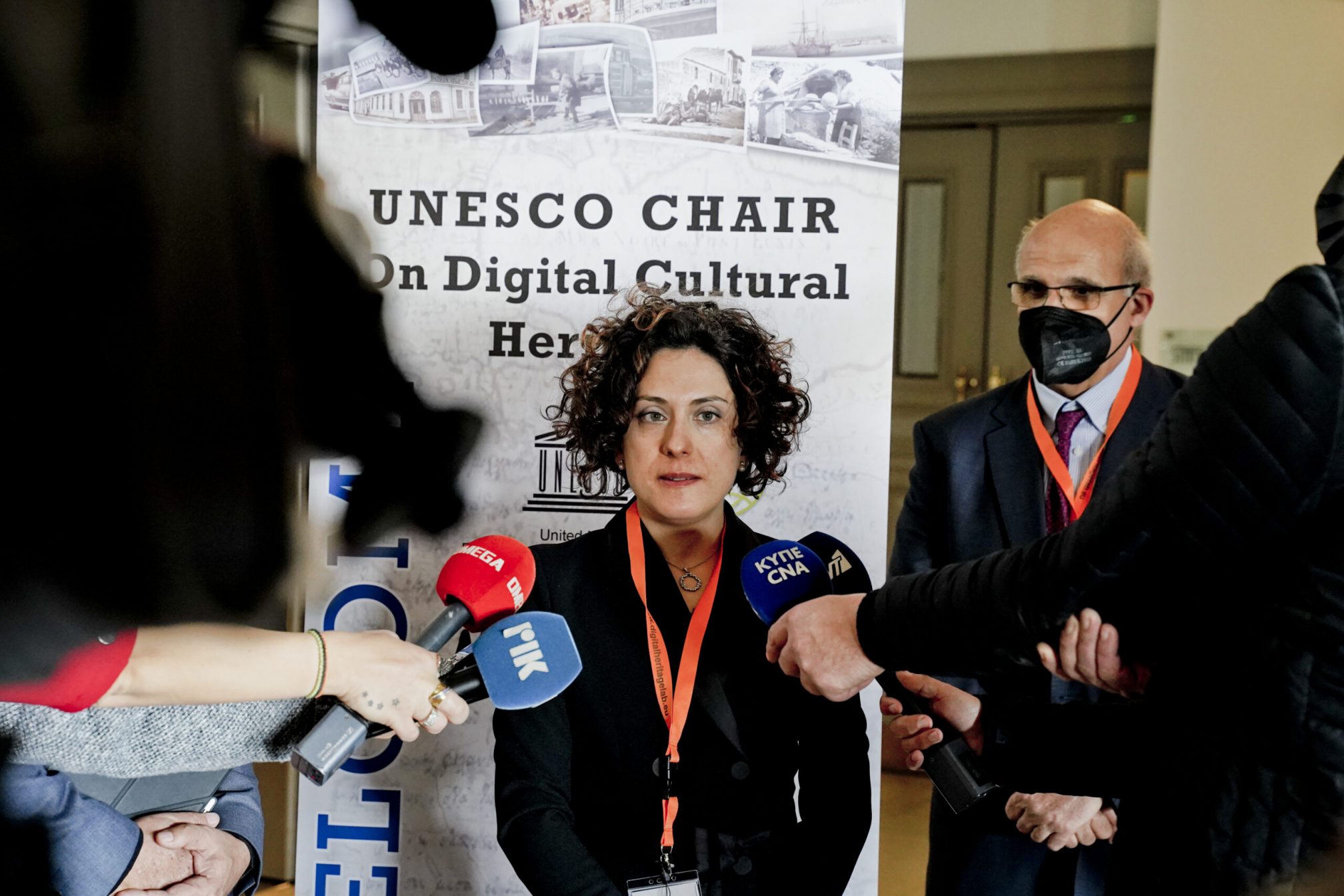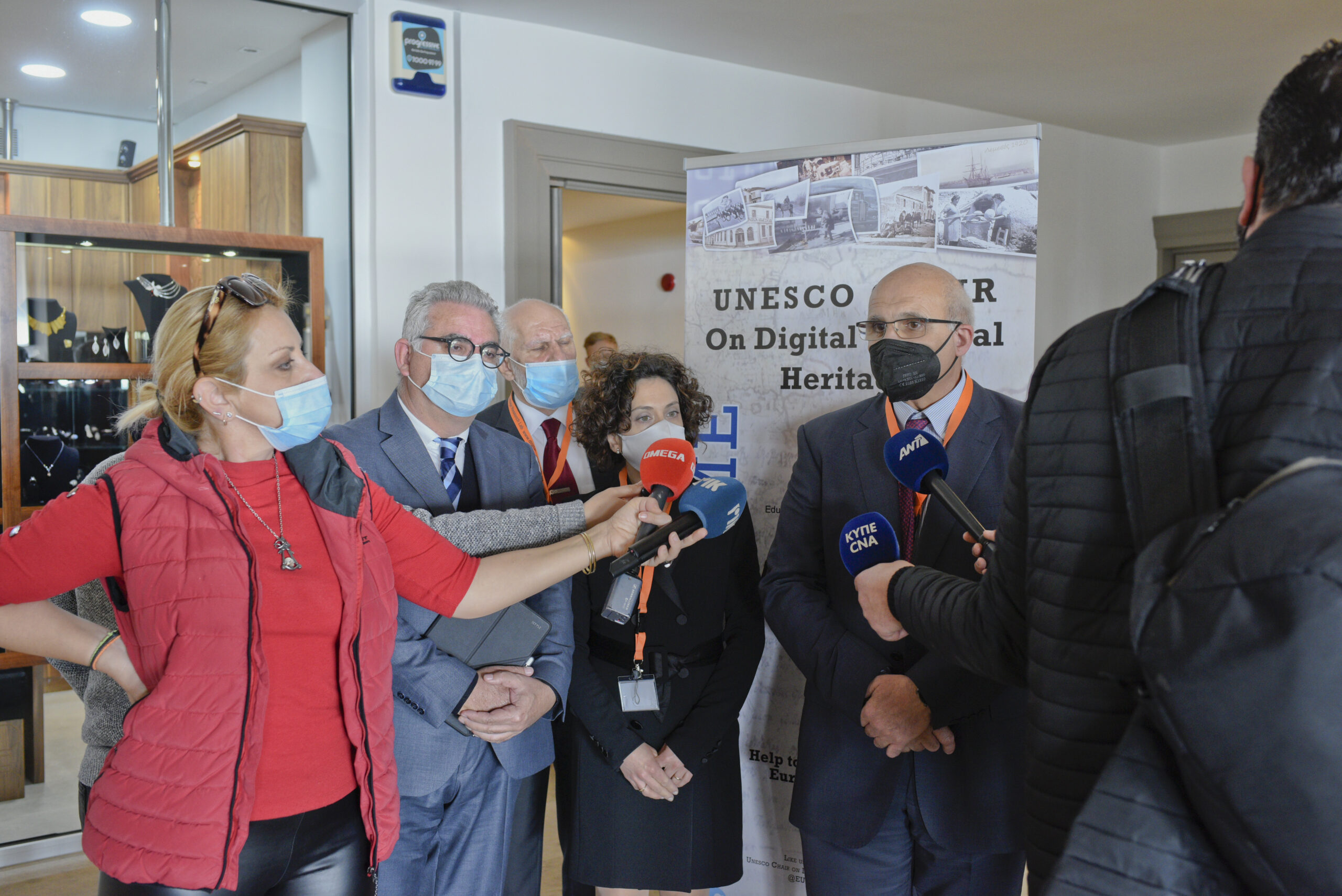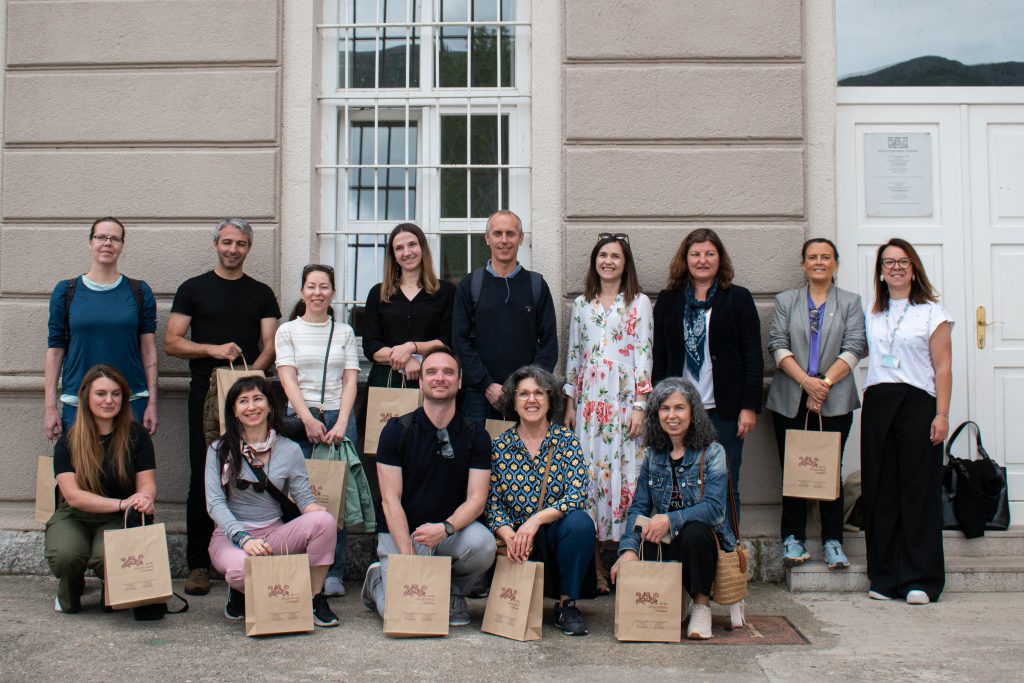Published on 17 Mar 2022
The UNESCO Chair on Digital Cultural Heritage at the Cyprus University of Technology in Cyprus and the UNESCO Chair in ICT to develop and promote sustainable tourism in World Heritage Sites at the Università della Svizzera Italiana – USI in Lugano (Switzerland), organized a Winter School on the topic of “Digital Cultural Tourism and Diplomacy”, which ran from the 13th to the 19th February.
The UNESCO Chair for Digital Cultural Heritage was established at the Department of Electrical Engineering, Computer Engineering and Informatics at the Cyprus University of Technology (CUT) in 2018. The establishment of the Chair at the University of Technology constitutes an international recognition of the important contribution of the Digital Heritage Research Laboratory of the Cyprus Technological University in the field of digitization, preservation and promotion of the cultural heritage of Humanity. The main aim of this unique Chair is to define, extend and carry out a program of research in digital heritage which will further UNESCO’s cultural heritage agenda in the wider region. The Chair carries out a wide-reaching program of awareness raising and knowledge-sharing projects on the role of Digital Cultural Heritage (DCH) in the Eastern Mediterranean region and beyond. In addition, it introduces model DCH curricula (‘Cultural Informatics’) at vocational, undergraduate and postgraduate levels and extends course availability, teaching and study facilities to students internationally through state-of-the-art e-Learning.
The UNESCO Chair at USI is committed to performing extensive research and teaching on how digital media can be effectively used to develop and promote sustainable cultural tourism. One of the major issues nowadays is to balance between visits and heritage conservation, in order to preserve heritage for future generations while providing access to visitors. While sustainability may be considered from many different perspectives, the Chair stresses the idea that tourism should not at any circumstances damage the protected heritage and its conservation, while it should, on the contrary, foster cultural encounters, reciprocal understating and social cohesion.
40 participants from around the world took part in the winter school, among them researchers and professionals in the field of tourism and heritage, and a group of Master students attending a program on International Tourism at Università della Svizzera italiana – USI in Lugano.
The agenda has seen several national and international speakers, who discussed the present and the future of the tourism sector, which is one of the key assets of Cyprus and is strictly bound to the tangible and intangible heritage of the island. Among them: Mr. Yannis Karousos – Minister of Transport Communications and Works, Mr. Savvas Perdios – Deputy Minister on Tourism, Mr. Kyriakos Hadjiyiannis, Member of the Cypriot Parliament and Chair of the Parliamentary Committee on Tourism and Commerce, Mr. Filokypros Rousounides – Director General Cyprus Hotel Association, Mr. George Campanellas – CEO Invest Cyprus. Also Mr. Pierre-Yves Fux – Ambassador of Switzerland to the Republic of Cyprus, joined the event pointing out the very good relations between Switzerland and Cyprus, as well as the commonalities between the two countries. With the goal of looking at the development of cultural tourism at a European level, several scholars who are coordinating research projects founded by the EU, joined the event and discussed the role of research in informing decision-making by improving knowledge and educating people. In this event TExTOUR and five other European projects have been presented in a special session chaired by the European Commission officers in the Research Executive Agency and the European Commission DG RTD.
Two trends emerged clearly, which describe the direction that cultural tourism is taking and the role of digital technologies. One is the need and benefits of involving local communities, reconnecting locals with their heritage, thus preserving it, keeping society cohesive and bringing back young people to the villages. A second trend is the personalization of tourism experiences, which can be reached with a wise use of digital technologies, that are nowadays an integral part of everyday life.
The participants had the opportunity to experience Cyprus culture at large, by visiting heritage places and speaking with the respective stakeholders, enjoying local eno-gastronomy, participating in folklore performances, and just wondering around as tourists do.




